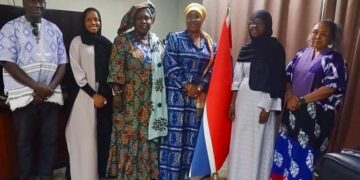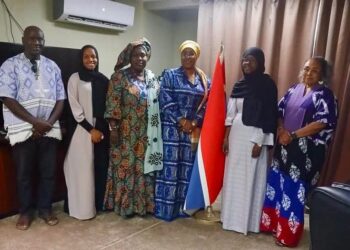Celebrating the life and legacy of Professor Abiola Irele — the Nigerian intellectual who bridged African thought, literature, and global philosophy.
Professor Francis Abiola Irele remains one of the most revered figures in African literary scholarship — a man whose intellect, eloquence, and vision transformed how the world understands African literature and thought. Regarded as the “doyen of Africanist literary scholars worldwide,” Irele devoted his life to interpreting the African experience through language, philosophy, and creative imagination.
Early Life and Education
Francis Abiola Irele was born on May 22, 1936, in Igbo-Ora, Oyo State, Nigeria, into a Yoruba family that valued education and moral discipline. His father worked as a civil servant, and young Abiola showed an early passion for reading and debate, qualities that would later define his intellectual journey.
He attended Ibadan Grammar School before proceeding to the University of Ibadan, where he obtained a Bachelor of Arts degree in English. He later pursued his PhD in French Literature at the University of Paris, Sorbonne, where he studied under leading literary theorists.
His exposure to both African and European intellectual traditions gave him a unique cross-cultural perspective that deeply influenced his later work on the Négritude movement and postcolonial thought.
Academic Career and Contributions
Professor Irele’s academic journey was as rich as it was influential. He began his teaching career at the University of Ibadan, where he emerged as one of the leading voices in African literary studies. Over the decades, he held teaching and administrative positions at several world-renowned universities, including Ohio State University and Harvard University in the United States.
In Nigeria, he served as the Provost of the College of Humanities at Kwara State University, Ilorin, where he nurtured a new generation of scholars and writers.
Irele’s writings were deeply philosophical, exploring themes of identity, culture, language, and colonial consciousness. His analyses often bridged the gap between African oral traditions and written literature, showing that both were essential parts of Africa’s intellectual history.
Among his most acclaimed works are:
The African Imagination: Literature in Africa and the Black Diaspora (2001)
The African Experience in Literature and Ideology (1981)
Négritude and African Literature: Critical Essays (1992)
His essays, collected in numerous volumes, tackled the complexities of African identity in a postcolonial world, particularly through the lenses of language and cultural expression. He argued that African literature was not simply an imitation of Western forms but an autonomous mode of thought and creativity.
The Négritude Movement and African Humanism
One of Irele’s most profound contributions was his interpretation of the Négritude movement, pioneered by Aimé Césaire, Léopold Sédar Senghor, and Léon Damas. While many critics viewed Négritude as outdated or overly romantic, Irele approached it as a humanist philosophy that affirmed African identity and cultural dignity in the face of colonial oppression.
He saw Négritude not merely as a political slogan but as an intellectual awakening — a declaration that Africans could define their essence, values, and destiny on their own terms.
His essays, including “What Is Négritude?” and “In Praise of Alienation,” remain foundational texts in African and postcolonial studies, bridging African philosophy, literature, and global discourse.
Intellectual Influence and Mentorship
Throughout his career, Professor Irele was known not just for his brilliance but for his humility, mentorship, and compassion. He guided hundreds of students who would go on to become leading academics, writers, and cultural thinkers across Africa and the diaspora.
At Harvard, where he served as Chair of the Department of African and African American Studies, he helped expand the study of African literature within the American academy. His intellectual reach transcended borders, connecting African oral traditions to modern philosophy and comparative literature.
Awards and Recognition
Professor Irele’s scholarly impact was recognised both locally and internationally. He was elected a Fellow of the Nigerian Academy of Letters, honoured by numerous academic associations, and celebrated for his lifelong service to African humanism and cultural scholarship.
In 2014, he was conferred with the Nigerian National Order of Merit (NNOM) — one of the country’s highest honours for intellectual achievement.
Personal Life and Death
Professor Irele was a private and disciplined individual, admired for his integrity, warmth, and modesty. He was deeply spiritual and maintained close ties to his Yoruba heritage while embracing cosmopolitan ideals.
He passed away on July 2, 2017, at the age of 81, in Cambridge, Massachusetts, United States. His death marked the passing of one of Africa’s greatest literary minds — a thinker who combined intellectual brilliance with moral depth.
Legacy
Professor Francis Abiola Irele’s legacy endures in his writings, his students, and the intellectual frameworks he helped establish. His scholarship redefined the place of African literature in the global canon, showing that African thought was not peripheral but central to understanding humanity itself.
He remains a bridge between Africa and the world, a voice of wisdom whose words continue to inspire new generations of writers, thinkers, and dreamers.
References:
Irele, Francis Abiola. The African Imagination: Literature in Africa and the Black Diaspora. Oxford University Press, 2001.
Irele, Francis Abiola. The African Experience in Literature and Ideology. Indiana University Press, 1981.
Nigerian Academy of Letters Archives.



















































































 EduTimes Africa, a product of Education Times Africa, is a magazine publication that aims to lend its support to close the yawning gap in Africa's educational development.
EduTimes Africa, a product of Education Times Africa, is a magazine publication that aims to lend its support to close the yawning gap in Africa's educational development.